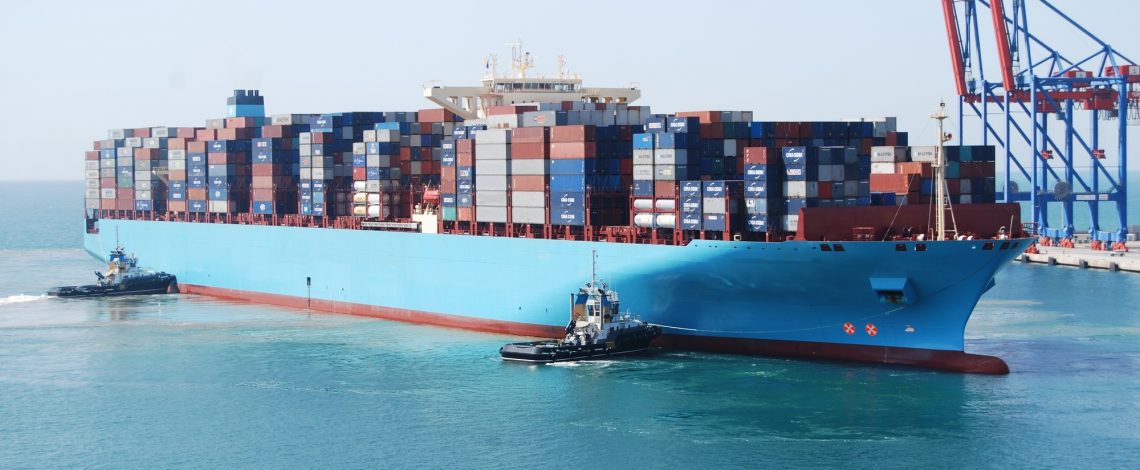Given that American companies have more than $150 billion at stake with the Chinese trade deal, shipping internationally is a big deal. If you’re producing items here, you need to ensure that you package and label your shipments correctly to get them where they need to go. Any snag at all when shipping internationally leads to a product that doesn’t arrive or is severely delayed.
Here are four things you need to know about shipping internationally.
1. Get to Know the Recipient
While it seems fairly obvious that you need to know who you’re dealing with, there are a lot of frauds that begin with international shipping. When people conduct a scam from another country, they’re often exempt from the laws that otherwise protect you in your own country. If you don’t know the person you’re shipping to, you may be on the cusp of a fraud.
Some of these recipients use email to get to know the person they’re dealing with. They have the items shipped like any other business would, with an invoice to be sent later. However, when you send them the invoice, they’ve moved or suddenly disappeared.
While most of these scams involve some kind of money laundering or sending mail orders overseas, some involve your product and inventory. If you’ve sent a valuable item or some valuable items overseas, you need to know that you’re sending them to someone reputable. Otherwise, you should get payment up front.
Protecting yourself is vital when you start dealing with international shipping. One wrong move could cost you thousands and most businesses struggle to absorb even a minor loss like that.
2. Know The Rules for Your Product
When you’re shipping internationally, you’re no longer dealing with lax domestic laws. While there are strict limits in the country for what you’re allowed to ship, people bend the rules all the time, sending electronics and liquids to friends. However, once you start sending things internationally, you’re dealing with much more intense inspections and stricter regulations.
Some things seem harmless to have shipped by the average shipment company, however, you could be constantly breaking their rules without realizing.
One of the things that people most often break the rules on is lithium batteries. When you send laptops, smartphones, or other electronic devices through the mail, you may be dealing with lithium batteries. While a ground service is perfectly okay for sending items like this, it’s not okay to send them internationally.
Once you’re sending two batteries or four cells across the planet, they’re going to have to be installed in the item they’re used for. Otherwise, these loose batteries can’t be sent to wherever you’re mailing them to.
In some countries and within the boundaries of the United States, it’s perfectly fine to send a friend a small cactus or plant. However, if you try and send it to most countries, it’s like going to be thrown away. You can’t ship plants to most other countries because of environmental and agricultural regulations.
3. Lots of Factors Come into Play
In late 2018, there were on and off strikes for Canada Post workers. While this might seem like a small factoid, during a busy holiday season, this is a critical time for postal workers to be missing from work. This means that people around the world are impacted.
Perishables end up spoiling, rush deliveries end up being late, and companies usually known for punctual shipping times end up getting bad reviews. The ramifications of unrest or any kind of strike may hit you or your customers in unpredictable ways.
On top of that, some countries don’t allow certain items into their country. Used clothing items carry serious restrictions when they’re sent into Mexico. Depending on where an item was manufactured and what the components are made out of determines whether it get sin.
Political unrest can even change the way shipping is done. With French workers striking across the country in late 2018, it’s likely rare that any packages arrived at their estimated times. However, since shipping companies bear the brunt of this problem, they often compensate shippers for delays.
4. Fill Out Your Documentation
When you’re shipping outside of your home country, it’s vital for you to have the right kind of paperwork. Most countries require declaration is of all types when you’re sending products into a country. You need documentation that stays on the U.S. side of things as well.
Commercial invoices are used when products are sold overseas. They list the person sending, the person receiving, and some details about the item in the package. Be sure that you package up your items with plenty of bubble wrap just in case authorities go poking into it and prying it open for a last minute inspection.
You likely need to have a certificate of origin for your product. This is a document that lists where the item was shipped from and where it was manufactured. Here the address of the person shipping and a detailed list of the contents get included. After you’ve filled it out, usually the chamber of commerce then notarizes it.
If you’re sending something that’s worth more than $2,500, you’ll have to give an export declaration. You likely need an export license. Here you give documentation about the value of your package. This form is essential when shipping to Cuba, Iran, Iraq, Sudan, North Korea, Libya, Syria, or Serbia.
Shipping Internationally Is Key To Business
If you want to compete in a growing global marketplace, shipping internationally is a big part of staying on top. If you haven’t mastered the art of the customs form, it’s about time to learn.




